|
10/30/2018 Dress Up for Our Lives by Ruth EbensteinDress Up for Our Lives by Ruth Ebenstein This Halloween, I’ll be thinking of activists like Emma González, 18, advocate for gun control, and her peers from Marjory Stoneman Douglas High School in Parkland, Florida, who have spearheaded the March for Our Lives movement. I’ll be thinking of all the inspiring young people across the country who will take a break from their tireless rallying to get out the vote for the midterm elections, throw on a costume, and head out to their neighborhood streets to trick-or-treat. I’ll also be thinking about a younger generation that has also caught the activist bug while still in elementary school. Kids like Anya Moon, 10, who happens to be a big fan of Emma González. For Anya, Emma is something of an icon. So much so that she inspired Anya some four months ago to design and make her own Emma González costume, which was even topped off with a matching Emma González Barbie. Last June, Anya’s elementary school in Virginia celebrated Celebrity Day as part of its end-of-year Spirit Week. Students were invited to dress up as their favorite famous person. Most chose the typical celebrities, such as actors, singers and favorite fictional characters: Princess Lea, Demi Lovato, Bob Ross, Peter Pan, Hermione Granger. One child even dressed up as the Domino’s pizza delivery guy. But not Anya. She chose to dress as her favorite activist for gun control. “I chose Emma because she stood out at the March For Our Lives,” explained Anya. She had watched the March for Our Lives demonstration last spring on television with her father and sister, while her mother protested with thousands of others. “Even when Emma chose to not speak and engaged in intentional silence, she commanded a lot of presence on stage.” Anya was drawn to the identifiable activist because Anya too had firsthand experience with the devastating impact of gun violence. On December 22, 2017, calamity struck her street in Reston, Virginia. Her neighbors, Buckley Kuhn Fricker and Scott Fricker, were shot to death in their home, allegedly by their daughter's boyfriend. Their son sat next to Anya in class. Tragedy hit in a home decked for Christmas, with a tree artfully decorated and presents beautifully wrapped. In no time, Anya understood the pressing need for gun control. She did what she could: she penned a letter to President Trump. But Anya also recognized thatEmma’s activism represented the power of what a young person could do in a more ongoing fashion to spur change in the system. For Anya’s costume, she folded her long hair into her cap, cut her jeans, and wore a painted March For Our Lives t-shirt. The Barbie doll had been a surprise from her mother. Just as the fourth grader was about to leave for school, her mom, Danuta, gave her a homemade Emma González Barbie doll with a matching outfit, which Danuta had sewn from scratch. “Anya loves her Barbie dolls, so I thought it would be a perfect gift,” said Danuta. “I even found a Barbie with a buzz cut that resembles Emma.” Anya was ecstatic. Her only complaint: the fashionable cuts in Barbie’s jeans looked far better than those on her own. Still, civic duty is obviously not about buzz cuts and well-ripped jeans. 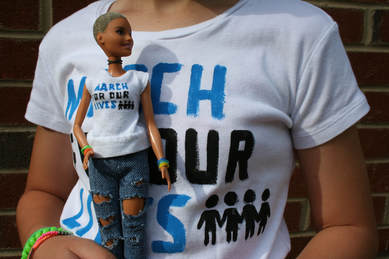 Looking at the calendar, the date on which Celebrity Day fell seemed like it was not coincidental: June 14, 2018, marking exactly four months since 14 students and three staff members were shot to death at Marjory Stoneman Douglas High School in Parkland, Florida. And earlier this week was another mass shooting that seemed inconceivable. On October 27, 2018, four and half months later, 11 adults were gunned down in Pittsburgh while praying at a synagogue called Tree of Life, during a circumcision and baby-naming ceremony. Two brothers in their 50s with developmental disabilities, a substitute teacher, a doctor, a dentist, a 97-year-old grandmother. Three women and eight men ranging in age from 54 to 97. Three days earlier, a man tried to break into Kentucky’s First Baptist church in Louisville, but failed. Instead, he gunned down two African Americans at Kroger. One of the victims is the father of Louisville Mayor Greg Fischer’s Chief [Racial] Equity Officer. And as I penned these words, on Monday, a student at Butler High School in North Carolina shot and killed a fellow student. The rest of the students were sent back to their classrooms, as if nothing had happened. In a world where many teen icons are famous for being famous, it’s inspiring that a ten-year-old is modeling herself on a gun control activist, who is only eight years her senior. That the person she looks up to is Emma González. Mind you, costumes aren’t just clothing. Donning a costume can imbue us with agency. It is our way of showing that we can be other than we are, and that the world can be other than it is. Putting on a costume can be an act of faith in a better future. That is also what propels Emma. Emma isn’t interested in celebrity status. She’s laboring for civic change. And that is the best kind of celebrity. Emma and Anya, deck yourselves out for Halloween and head out to trick-or-treat. Savor the day. And then come home and resume your activism. We’re going to need many more of your kind to bring about the change that we need to see in America. 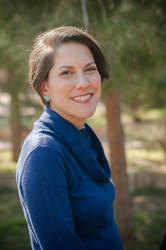 RUTH EBENSTEIN is an award-winning American-Israeli writer, historian, public speaker and peace/health activist who loves to laugh a lot and heartily. She is the author of the forthcoming memoir, Bosom Buddies: How Breast Cancer Fostered an Unexpected Friendship Across the Israeli-Palestinian Divide. Ruth has also penned a children’s book entitled All of this Country is Called Jerusalem. Her writing has appeared in the Atlantic, TriQuarterly, the Los Angeles Review of Books, Washington Post, Tablet, CNN.com, WomansDay.com, Brain, Child, Entropy, Stars and Stripes, USA Today, WeAreTeachers, Fathom, Quail Belle, Education Week, and other publications. Find her online at RuthEbenstein.com, on Facebook at Laugh Through Breast Cancer – Ruth Ebenstein, and on twitter @ruthebenstein. 10/2/2018 Editor's RemarksH Matthew Howarth CC
We might be a linear species but the earth speaks a different language. The cyclical return, from endpoint to renewal. But things are not so easy for us. Habitats, familiar scents, wordless sensations, the kind we forget to feel more of as we grow older, more cynical. Innocence is all too often taken, good things spoiled. Trauma gets mixed into the paint and our canvas is never again as beautiful as we had once hoped it would be. “There is a crack in everything,” and not always enough light. Autumn seems a kind of sweet unburdening, trees shed their cover and stand naked to the world. The warm air turns cold and our bodies brace themselves for the changing of the atmospheric guard. Some animals retreat into the earth, the more fragile of our species, us humans, have our homes to stay inside of, if we’re lucky. Too many in this country, in this world, are not so lucky. Their bodies are bracing themselves in ways that are not at all sweet but frightening. Survival mode kills tenderness, and yet something recognizable and unspoiled in even the most tragic of circumstances and lives remains; I know because I have both seen it in others and lived it myself. You can trample a thing to near death but so long as there is life in it, there is life in it. “We’re all just walking each other home.” (Ram Dass) Not only as artists or writers but as individuals who, despite what the term implies, cannot possibly do this alone. Our measure comes from nothing other than the imperfect goodness that sometimes, impossibly, accidentally, purposefully, happens amidst all of the equal and unbearable amounts of damage done, to others, to ourselves. We want to do better but we often don’t know how. Where to start? Matthew Ryan once said: "You've gotta remember that we're all shot from a cannon, and I believe we get to decide where we land on some fundamental level." From such a fundamental thing as simple as listening to others in their darkest hour of pain, our hearts press in towards what is close at hand. We start our journey there. Going in also means going out. The world, including its sorrow, its trauma, lives in each of us. There is no detachment available to us from suffering. We are in it even when we are witnessing it in others and not ourselves. To learn to live in what I would call the broken-hopeful, is to accept that what can be done is also part of what cannot be done. Not completely. We aren’t finished with our story, not yet. There is still work to be done. Shedding skin is only preparation for what comes next; more skin, more covering, warmer air, a return to the place we started from. Slightly changed, more weary or more strong of heart, more or less bitter, more cynical or sometimes, amazingly, softer than the year before. Kinder, more attentive, leaning in. Learning. Waiting. Witnessing. Wondering. Wailing. Autumn can be sweet and it can be dark, like our lives. The paint is never the same, but the canvas can still be beautiful. James Diaz Founding Editor Anti-Heroin Chic 10/1/2018 Featured Poet: Janelle CorderoFfion Atkinson CC ghosts and the moon he’s backing the car out of a parking spot downtown and i ask him if he believes in ghosts / he says no right away without / looking at me / that’s how little the question shocks him / i ask why and / he shrugs still without / looking at me and says he outgrew the idea / he accepts that ghosts don’t exist / it sounds like this was something he had to come to terms with / we’re on the road now / moving through downtown and heading home / it’s dark and the sidewalks are busy with people going to and from concerts and shows and dinners and bars / i watch the people and i want to say / i do believe in ghosts but / we start talking about something else so / i don’t bring it up again / but right before we turn onto our street we notice the moon is red / he says some things can’t be explained and / i know he’s not just talking about the moon / million deaths carl sandburg says we each have a million deaths to die and / we should be given a new name each time we / die into a new world see / dying is the same as birth because / they both take us to a new and different place so / why be afraid / i ask this because i am afraid / alive somewhere else some days i think maybe we made a mistake burying you maybe / you weren’t dead after all and / the whole ceremony was wrong / i want to dig you up because maybe you’re scared of the dark down there and maybe / the casket lid is too heavy for you to lift / it doesn’t matter that i’m an adult / too old to be having these thoughts of resurrection / today i stare at the soil above your grave / i bend down to touch its darkness and / i see slim strands of grass breaking through the earth and somehow / this tells me you’re dead here but alive somewhere else / god is like that yesterday i believed the most in god and / today the whole idea makes me / nervous somehow like / an unexpected noise in the alley when / i take out the trash late at night / i’m not saying god is like that but / the idea is untouchable sometimes and that makes god untouchable and / faith untouchable and / hope untouchable so / maybe tomorrow i’ll believe again or / maybe not but / god is like that / before / it falls there are people who say we are living in paradise right now / i see the way green growth splits concrete and / how trees are tallest around cemeteries but / what about the stars and / their promise of a distant and different place / do our names even matter in the sky or / are we gods only here until / we’re not / this earth is the center of everything but / the center is always off-kilter like / a spinning top wobbling before / it falls /  Janelle Cordero is an interdisciplinary artist and educator living in the seventh most hipster city in the U.S. Both her writing and her paintings are sparse narratives that emphasize the disconnected nature of the human condition. Her writing has been published in dozens of literary journals, including Harpur Palate and The Louisville Review, while her paintings have been featured in venues throughout the Pacific Northwest. Her debut poetry collection, Two Cups of Tomatoes, was published in 2015, and her chapbook with Black Sand Press is forthcoming in 2018. Janelle’s artistic priority is to collaborate with other creators to push for social and political change. Stay connected with Janelle’s work at www.janellecordero.com. 10/1/2018 Lessons Learned By SaraGrace GriffinSaraGrace Griffin is a senior at the University of North Carolina Wilmington, double majoring in Creative Writing and Psychology in an attempt to comprehend their existence. They love traversing their native North Carolina backwoods and baby-talking to all dogs they encounter. 10/1/2018 Poetry By Maria SledmereBen Seidelman CC Security Deluxe A selection of minotaurs pass This is just my life, love is like the colour packed flat upon bus stop adverts a tendency towards breakfast for sport stars plasticize affect in myriads I gather up a careless lust Portend to the force-field, melancholic for objects Missing you means mostly missing the days in June and ghosts hatch cold from tins of peaches I have stored up a lot of loss in my time for times like these The metallic twang when they open Dreaming of climbing a tree against a tiled sky of marketed sunsets leaking syrup, relish precarious They long for flesh like christmas is it a missive in lieu of screens Learning to burn in the dark for this Lack of delete key, lapsing fire You’d type it like, in the context of minor stardust how do we seek the real? Still bothering with punctuation The internet made prettier labyrinths of everything you said, so I forgot your face and its usual synecdoche Hailing my monsters to imitate dawn. Autumn Equinox Forms of address, they clot in the lungs to be singular I notice the rowan trees losing their fruit Eventually everything becomes a symbol for buffering: a bruise on cheeks, a glow of cold When I see red brick it’s always October somewhere in the world Can’t you see, the leaves clutter the streets like pastries, flaking; I love the air so crisp, you phone me for juice, just like that Dear sill, dear blue I have rolled for you this many cigarettes and smoked the sirens out of the night Do not think I will draw beyond these thoughts anything less; the day is so clear that my face hurts, I love you. 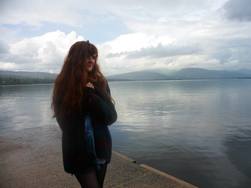 Maria Sledmere is a PhD student at the University of Glasgow, studying Anthropocene aesthetics and the everyday through creative-critical practice. She’s Poetry and Nonfiction Editor at SPAM Zine and Press, editor of Gilded Dirt, member of A+E Collective and regular contributor to GoldFlakePaint Magazine. You can find more work on her blog, musingsbymaria.wordpress.com. 10/1/2018 Press Delete By Chloe Spencer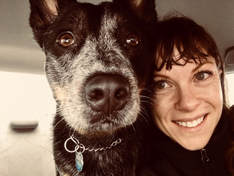 T. J. Butler was crowned Miss Virginia Beach in a shopping mall pageant when she was three, and she began writing shortly thereafter. She has worked in a variety of jobs from dishwasher to magician’s assistant to corporate office drone. She was a cat person until she was a dog person, and she once ate shark but found that it tasted too much like a predator. She lives on a sailboat with her husband and dog, and she is a regular contributor to Tiny House Magazine. 10/1/2018 Poetry By Grace LytleCarmen Jost Flickr CC First Love / Late Summer Spent the day picturing you in a wool-lined jacket with little clouds billowing from your mouth, a rainbow of Christmas lights surrounding us. I’d rather drag you back into the hot mud than watch you go and scrub yourself new, fall into someone else’s autumn. Leaving with my arms wrapped around myself, you drive toward her and I long to slice through our moments, a collection of boxes of German chocolate and nights on a cracked brown leather sofa, and unlearn you. Cantos for the Morning After My limits lie in the dishes in the sink. There is nothing to be said of breakfast – it’s all too much. Leaving and plucking the last few pieces of myself from the folds in the sheets. It wasn’t a mistake. A milk white cow rotting in the middle of a field the morning I drive home and scrub every part of my body until I am red and raw and new. The glass on my dresser fills with morning. I stand in a towel in the middle of my bedroom and let the light rebirth me. / I didn’t make a mistake. You knew the moment was just a moment, and the evening curls in on itself like a dying leaf. I’m full of scarlet and coal. I rip paintings off the walls. I take your tablecloth in my hands and yank it – the table setting comes with it. / Which is the moment I loved most? The one with your hand on my cheek and a promise that, next time, we’d have breakfast, or the one with the snow cold absence? I felt it all in my stomach when you got out of bed. We both know which moment I preferred. / I won’t forget it – the cow decaying in the grass. Its greying brain, a mirror facing me. In the reflection, I am packing up all the things that sting and hiding them away.  Grace Lytle is a young poet from Houston, Texas. She has previously been published in Canvas Literary Journal and 45th Parallel Magazine, among others. She loves black coffee and the winter. Her website is gelytle.wixsite.com/portfolio. Along for the Row: Frans Bengtsson’s The Long Ships I. TV binge-watching is a guilty pleasure for a former binge-reader. If I binge on anything, I think it should be all seven volumes of Proust’s In Search of Lost Time, say, or Moby Dick or Ulysses in a sitting. Five seasons of Michael Hirst’s Vikings, resplendent with male and female six-pack abs and shiny battle axes, doesn’t cut it—even when I try to defend the show’s merits based on the acting, the costuming, the use of old English, French, and Norse, as well as its attention to historical detail—it is the History Channel, after all! But let’s say Vikings had a source-text every bit as wonderful as the show itself. Then, I might assuage my guilt in the name of analysis, by comparing the TV show with the novel that informs it. This proves to be the case; Frans Bengtsson’s The Long Ships, first published as two separate volumes in the 1940’s, then combined into one in 1955, is rich in both the plot detail and humor that Michael Hirst mined for his scripts. Reading Bengtsson’s novel reveals how much Ragnar Lothbrok resembles Orm Toste, or how the caliph that Ragnar’s son Bjorn visits is very like Orm’s Almansur. One of Bengtsson’s captured Viking makes the same good use of his hair on the executioner’s block as his “It’s not over till it’s over” TV twin. In both, the old and new gods go head to head and even priests swap sides, themselves susceptible to pagan recidivism. Celibate priests yield (Finally! Thank you!) to the temptations of the flesh. Bengtsson’s Orm expresses a pragmatic view towards religion (which might appeal to moderns like me who have explored many, settled on none, but are inclined to pray when in turbulence at 32,000 feet) when he tells his enslaver: “We men of the north do not worship our gods except in times of necessity, for we think it foolish to weary them with babbling…Perchance it may be that our gods wield but little power in this land; therefore, lord, I for my part shall willingly obey your command and worship your God while I am your servant.” Right on. Throughout the course of the novel, Orm is Thor, Allah, and Jesus’s man in turn, ever with an eye to how his fortunes are faring. Hirst’s Ragnar is equally pragmatic, ready to perform blood sacrifices to Oden before a great voyage and to be baptized so that he can sneak his now-Christian body into a cathedral as part of a greater plan—or is it so that he can join his best friend, a Christian, in heaven after death? It doesn’t do to be too much of a stickler when it comes to matters of faith. The twenty-first century often fails to satisfy. Freed from blood sacrifice, we feel bloodless. Many of us struggle to define our tribe. We are left to cobble together rituals, which, since we fashioned them ourselves, fail to resonate. Popular movies like Fight Club explore what it means to cast about for meaningful rites of passage. Apparently, one has to speak in code and repair to grimy basement rooms in order to prove one’s mettle (or join a rugby team). There seems to be no new or untouched sacred places under the sun—all have been besmirched by selfie-stick toting tourists. In contrast, the Vikings had it easy. They identified with family and clan. They were their Jarl’s people, their King’s yeomen. They were taught to be brave, to give as good as they got, and not to whine. Both men and women trained for combat. On ritual days, they sliced something’s (or someone’s) throat and painted themselves in blood. They were close to the source. They could row to wild places free of human domestication. Who wouldn’t want to be part of that (apart from the monks at Lindisfarne)? Frans Bengtsson himself, born in Sweden in 1894, was also too late to go a-Viking. In the University of Lund, he found himself at odds with his day and age. In his essay “How I Became a Writer,” he reports: “My poems … were of ample proportions, preferably some fifty stanzas or thereabouts, and I was in the habit of reciting them…with some strong emotion, and always hoped to induce similar feelings in my listeners; but they confined themselves to stirring their coffee, scraping their pipes, cleaning their fingernails, and lapsing into a state of passivity, and recommended me with ever-increasing warmth to look at a number of Danish impressionist poets, whose productions seldom exceeded twelve lines in length.” No wonder Bengtsson returned, in The Long Ships, to an earlier time when poets were much celebrated. After Orm’s friend Toke composes some verses in praise of a king’s good ale, the king remarks: “There are few poets to be found nowadays, and few of those are able to turn out verses without sitting for hours in cogitation…I like men to whom verses come easily and who can give me some new delight each day when I dine…” I love this king. I’ll compose daily dinner verses for him. Sign me up. III. Both Bengtsson’s book and the History Channel series are bawdy. One must beget children to replace soldiers killed in battle, to ensure one’s claim on one’s landholdings into the future, to have farmhands to work the fields or oversee the slaves who work it, (and, of course, to hold the interest of readers / viewers, who expect some titillation for their time and trouble). Sex outside of commitment is only as bad as one’s partner thinks it is. If one can get away with it, why not? Women are carried off as plunder but also work surreptitiously to land the suitors they fancy. At King Harald’s great Yule feast: “No women were allowed to be present at so tremendous a drinking-bout, for it was difficult enough, King Harald thought, to keep the peace when men were by themselves, and it would be many times harder if they had women to brag to in their cups.” Orm meets his bride-to-be when flat on his back after a sword fight. They trade words, after which he opines: “Whatsoever man weds you, there will be long intervals between those occasions on which he will enjoy the last word.” Ylva responds: “I hardly think you are ever likely to be in a position to prove the truth of that remark…The way you look now, I would not lie in the same bed with you if you were to offer me five necklaces…” This sparring echoes the extended battles between TV-Ragnar and his feisty wife Lagertha. The TV series, mindful of its twenty-first century audience, goes beyond the book in not limiting its protagonists to heterosexuality, but even so, the book honors the flesh and its pleasures and the oft-problematic fascination we have with our beloveds. IV. In closing, I issue an invitation to all of you who until now have been Viking-viewers only. Find yourself a copy of Bengtsson’s The Long Ships and a reading buddy. (There is a 2010 reissue with an introduction by Michael Chabon.) Partake in the bardic tradition and recite it aloud over some thick ale. You’ll slap your sides, and it won’t be long before you are buying chain mail on e-bay and making your own wooden shields. I’ll meet you on the battle field and afterwards repair to the great hall. 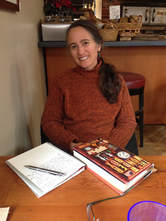 Devon Balwit teaches in Portland, OR. She has six chapbooks and two collections out or forthcoming: How the Blessed Travel (Maverick Duck Press); Forms Most Marvelous (dancing girl press); In Front of the Elements (Grey Borders Books), Where You Were Going Never Was (Grey Borders Books); The Bow Must Bear the Brunt (Red Flag Poetry); We are Procession, Seismograph (Nixes Mate Books), Risk Being/ Complicated (with the Canadian artist Lorette C. Luzajic), and Motes at Play in the Halls of Light (Kelsay Books). Her individual poems can be found here and in Cordite, The Cincinnati Review, The Carolina Quarterly, Fifth Wednesday, Red Earth Review, The Fourth River, The Free State Review, Rattle, Posit, and more. 10/1/2018 Don’t Tell By Meeah WilliamsMeeah Williams’s work has appeared in Otoliths, Phantom Drift, Uut, The Conium Review, Per Contra, Petrichor Review, Stone Highway Review, Dirty Chai, Shuf, *82 Review, Skin to Skin, Wilde, The Milo Review, Meat for Tea, Angry Old Man and others. She lives in Seattle and tweets at pussy_nagasaki@pussynagaski |
AuthorWrite something about yourself. No need to be fancy, just an overview. Archives
April 2024
Categories |
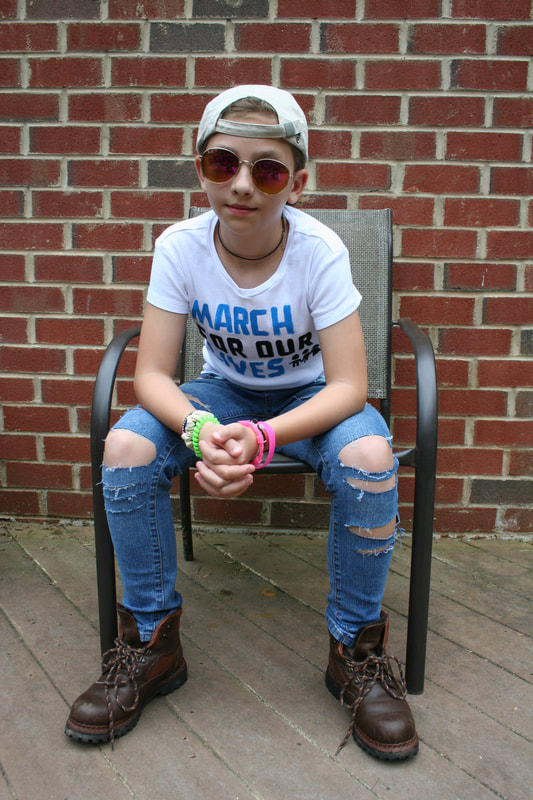

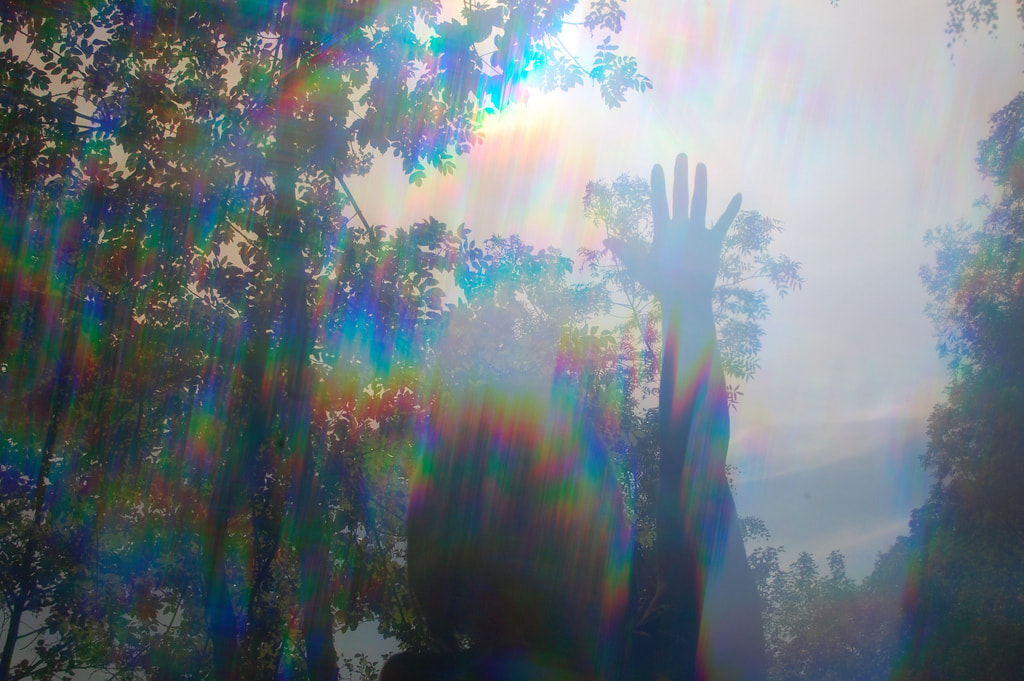
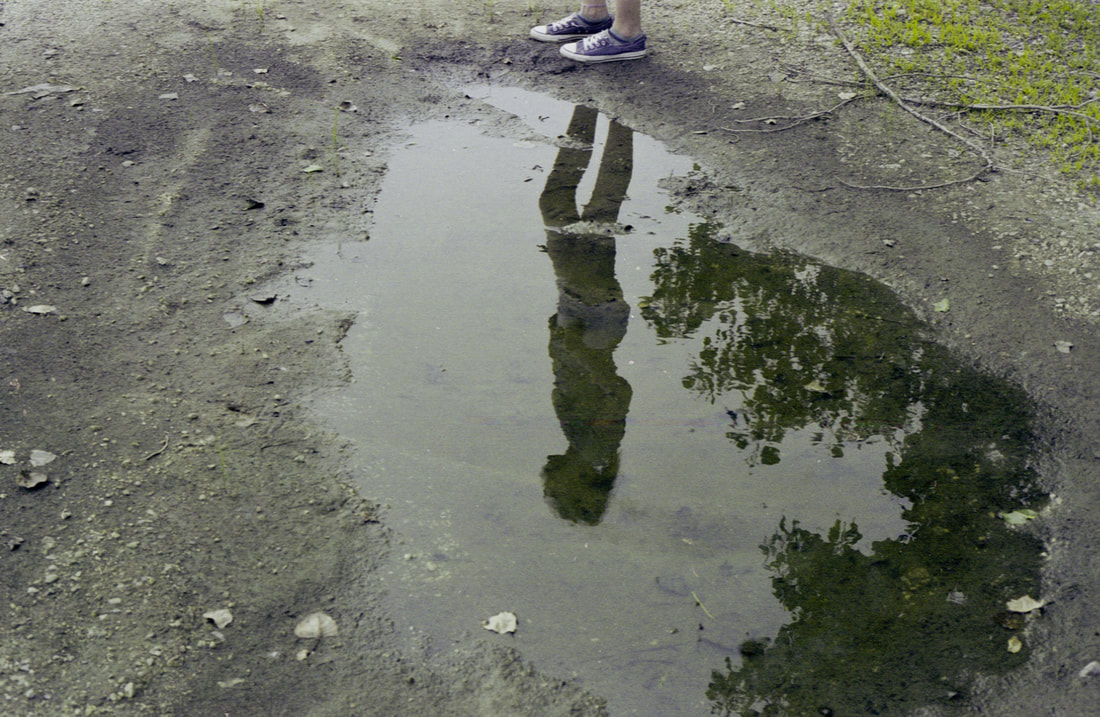
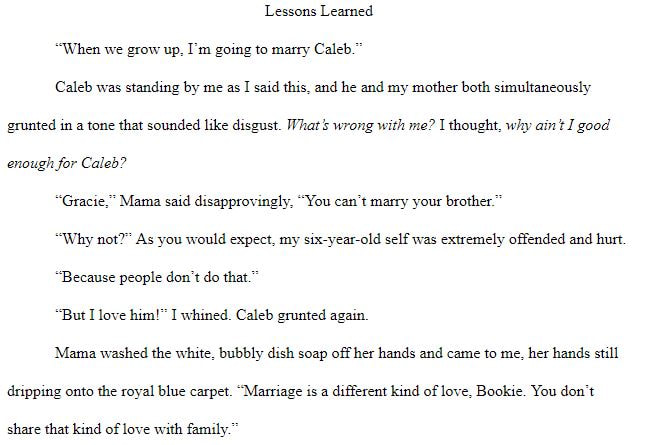
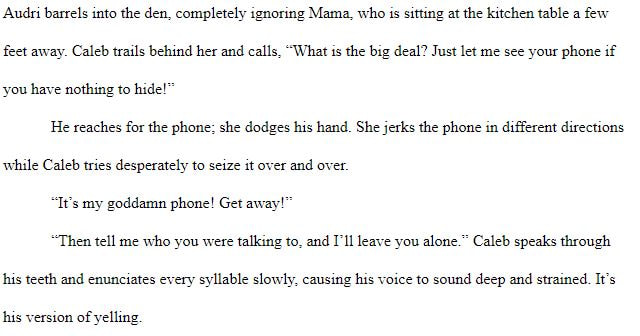
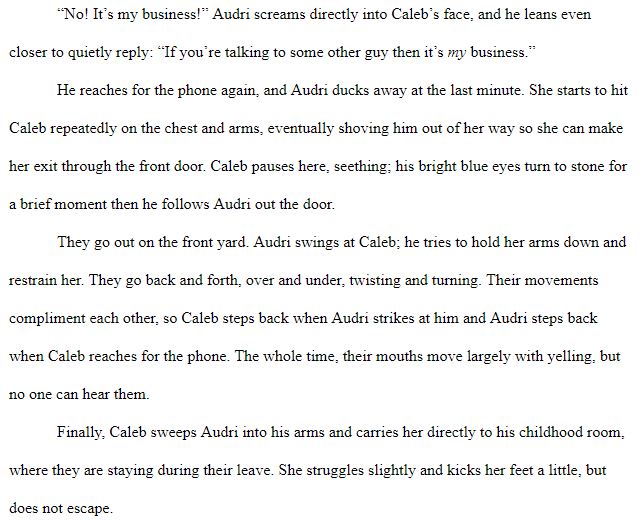
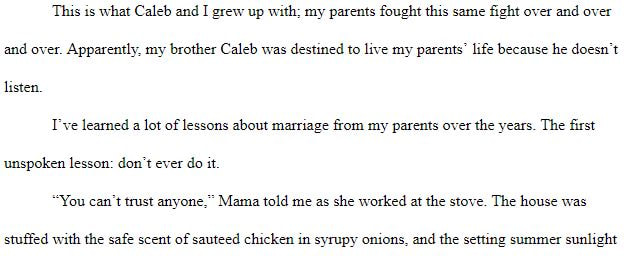
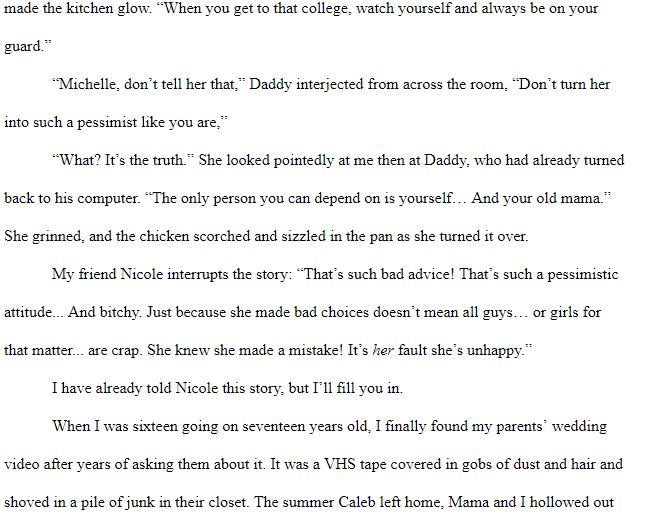
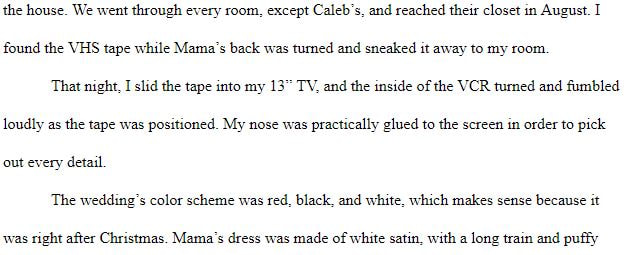
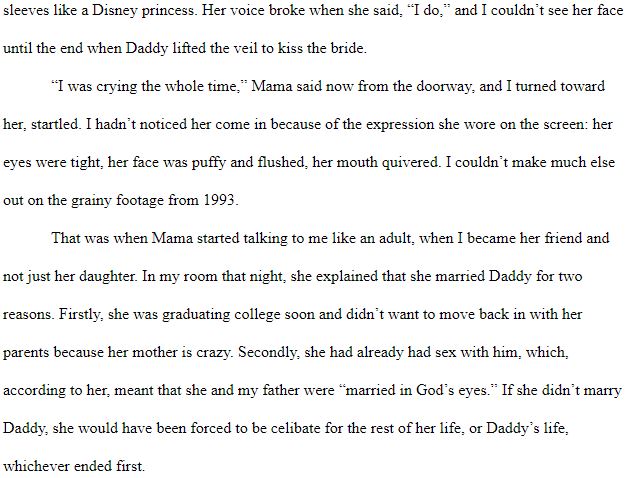
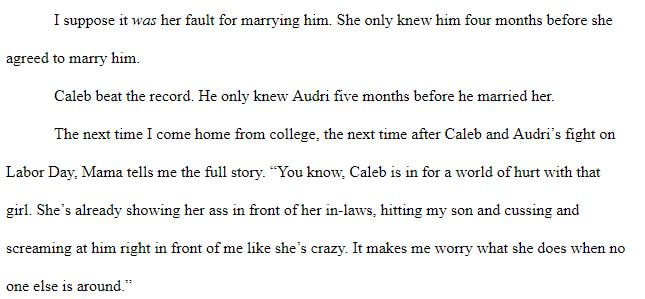
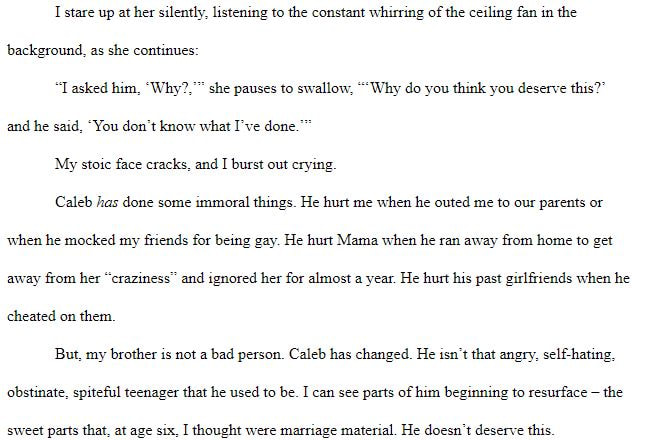

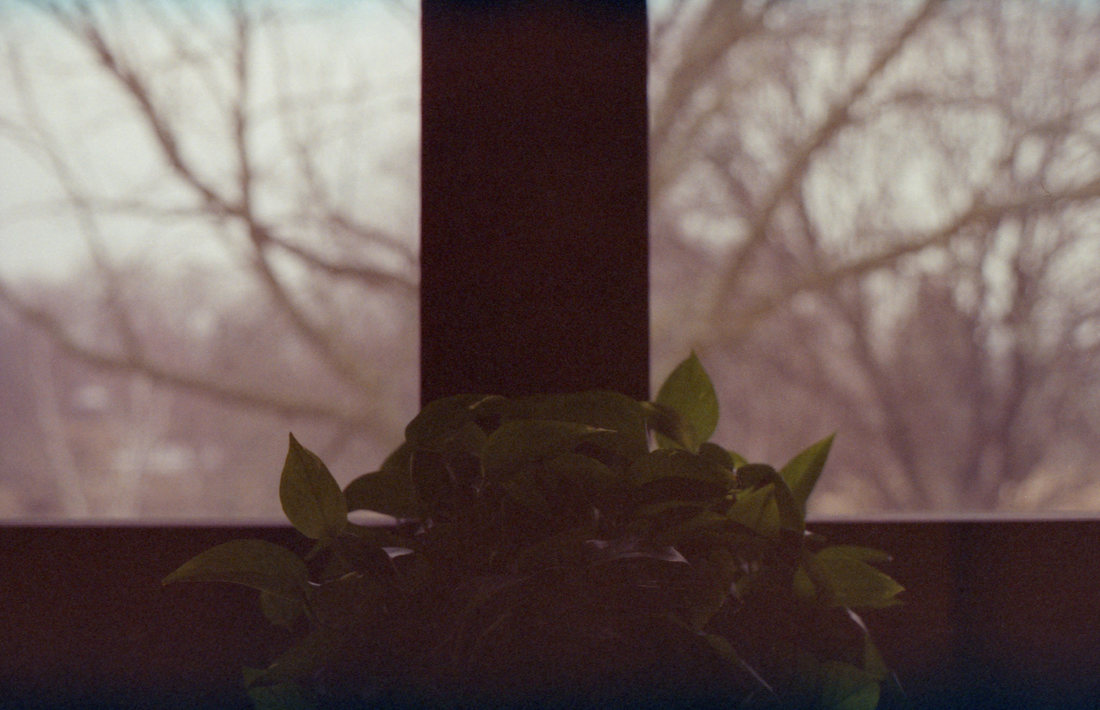
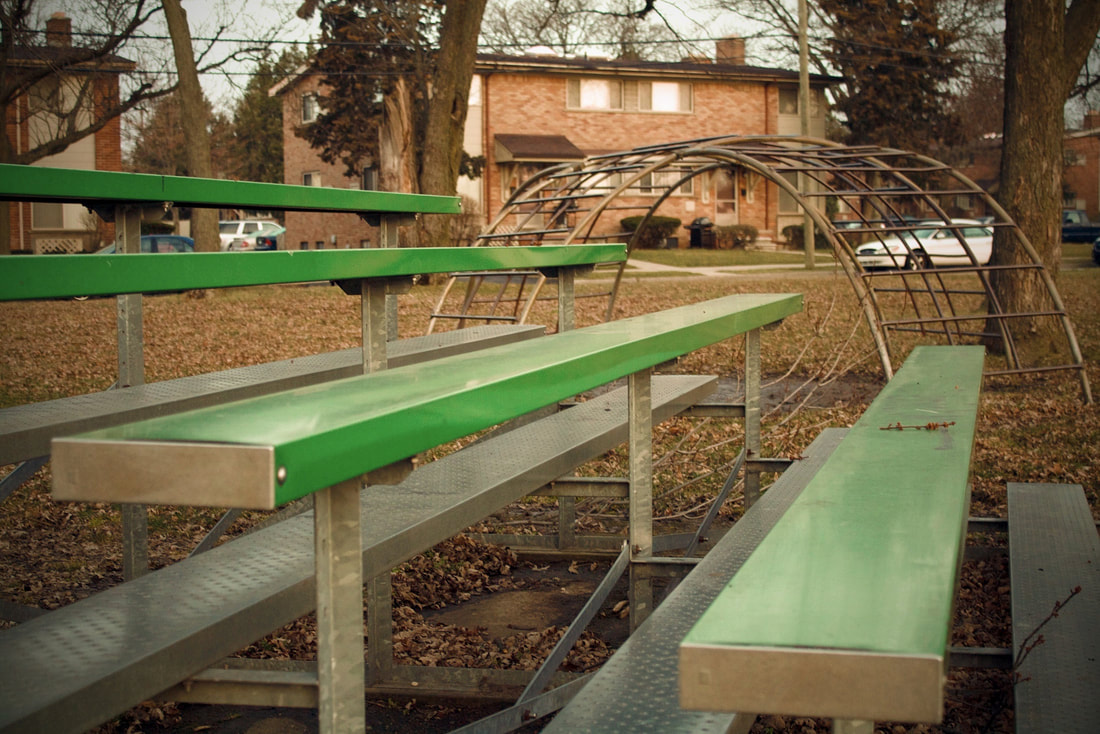
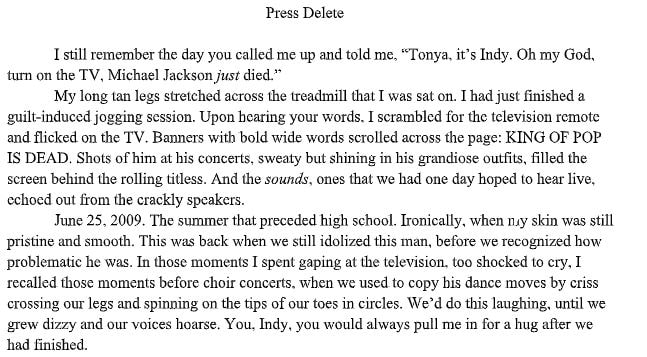
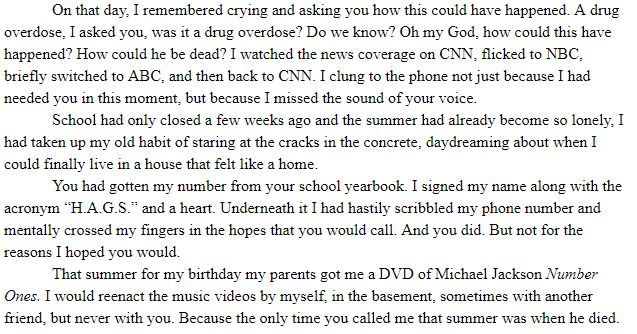


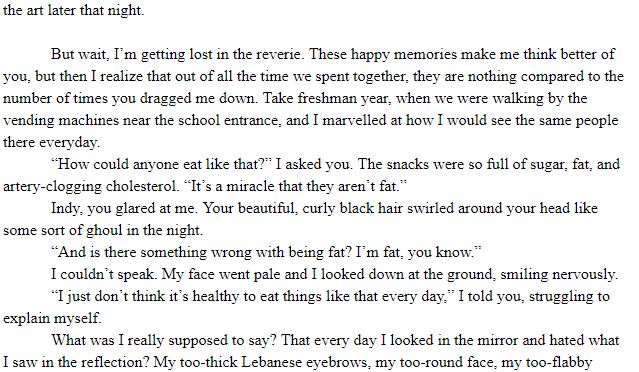
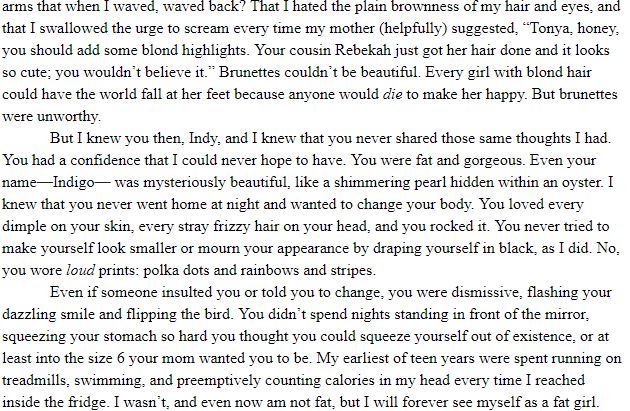
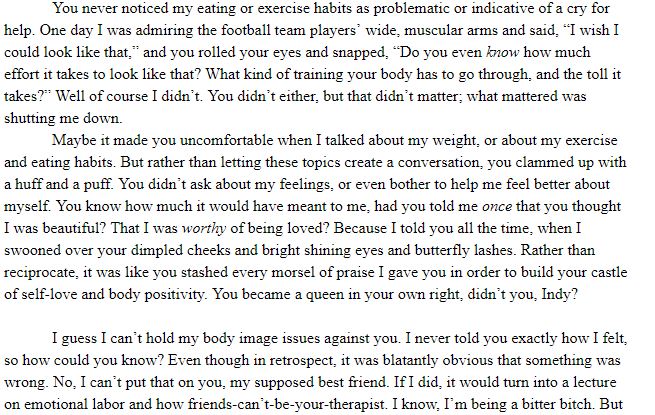
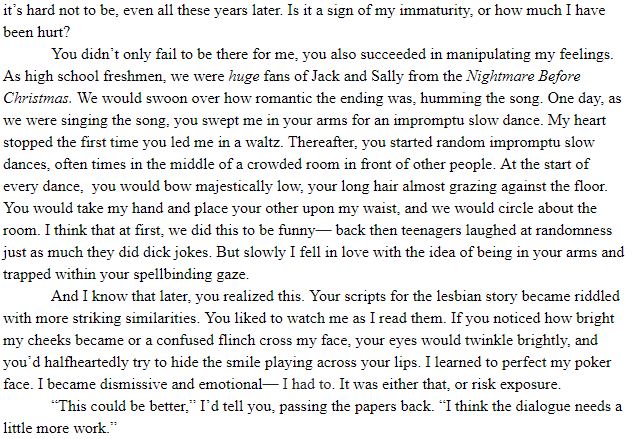
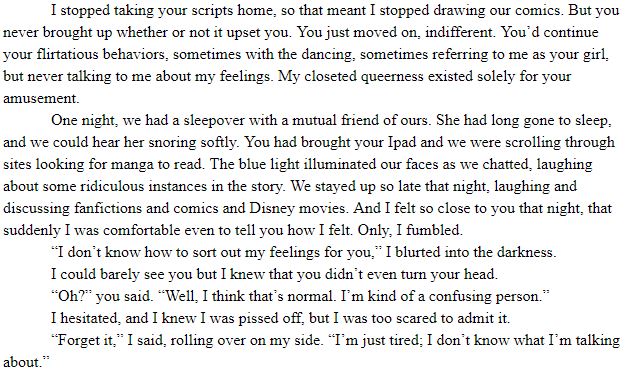
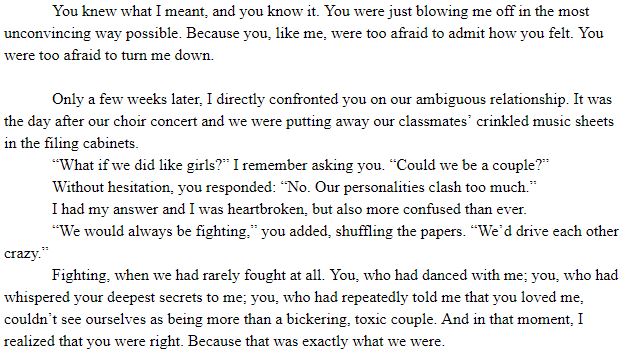
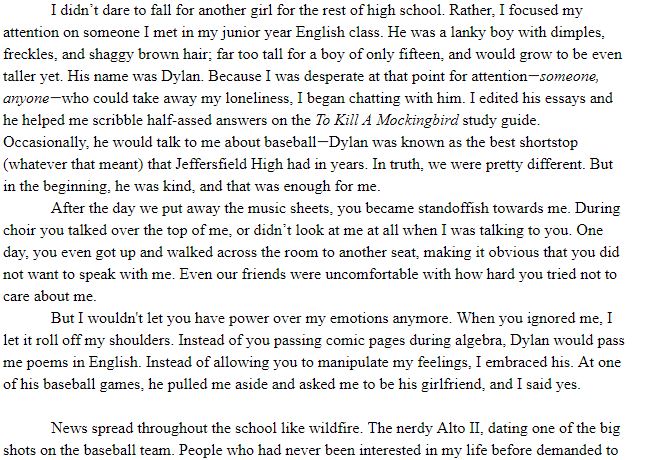
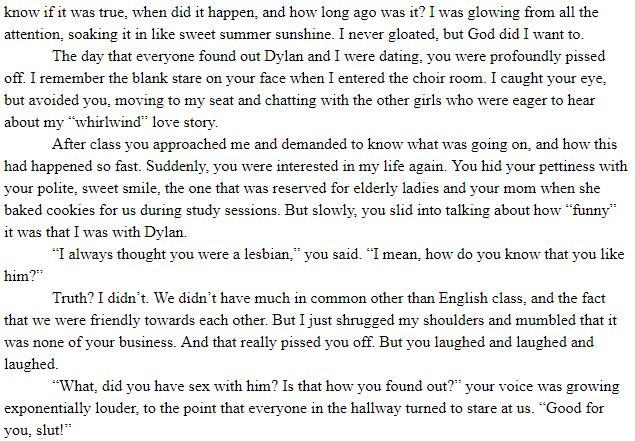
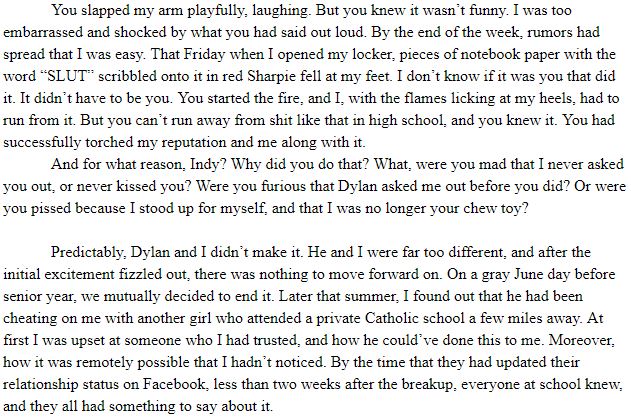
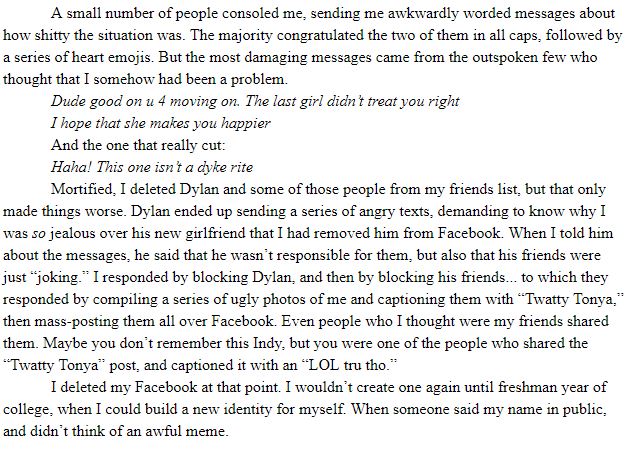
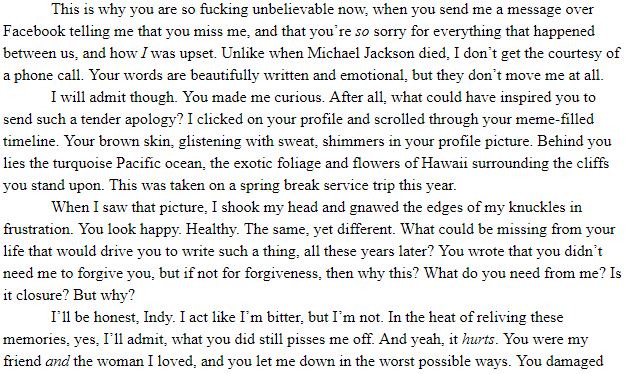
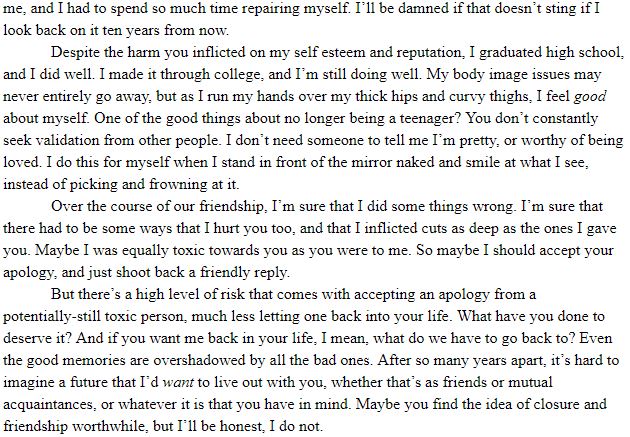


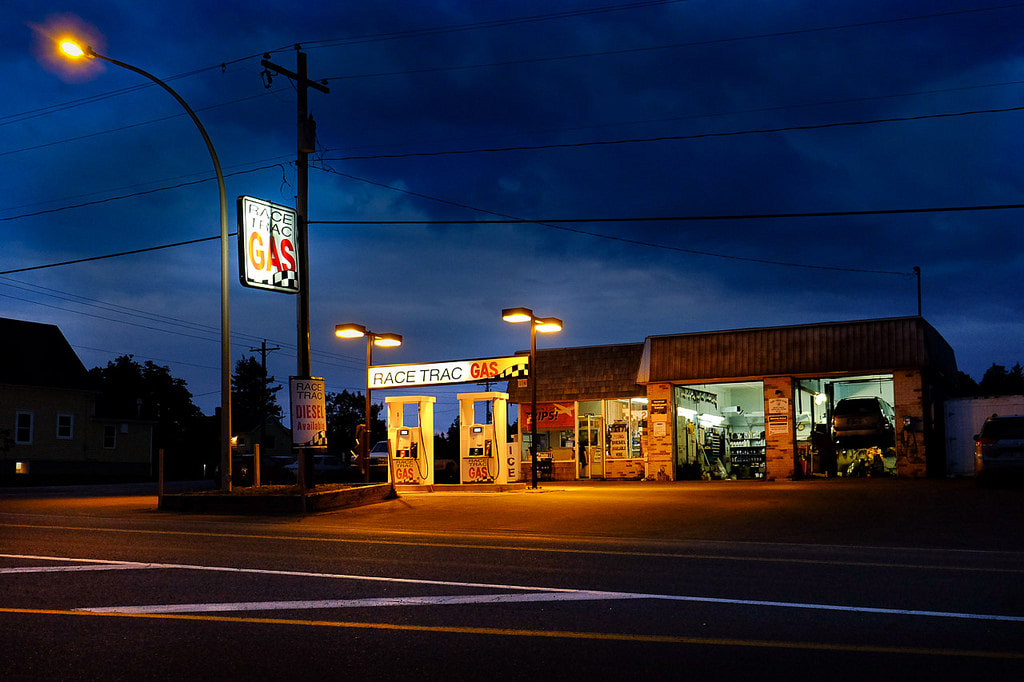
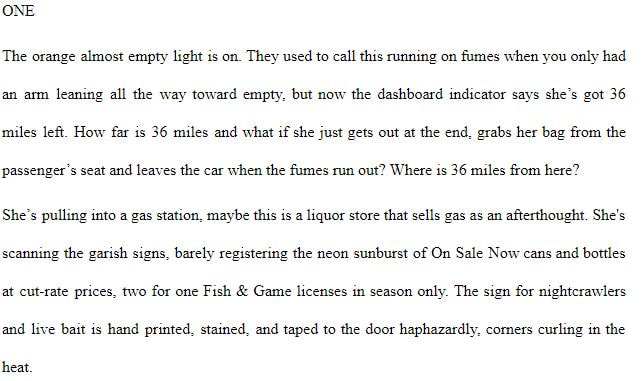
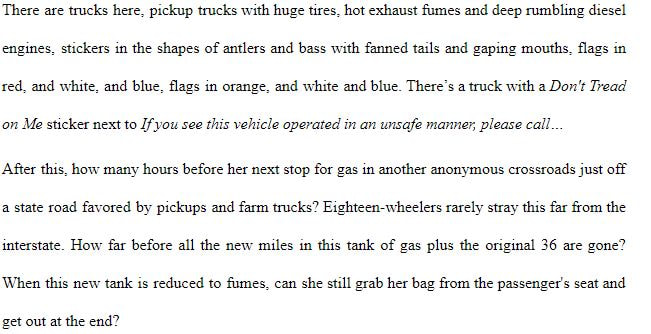
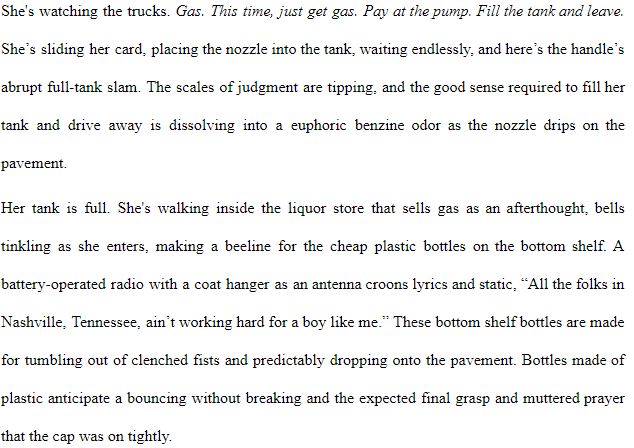
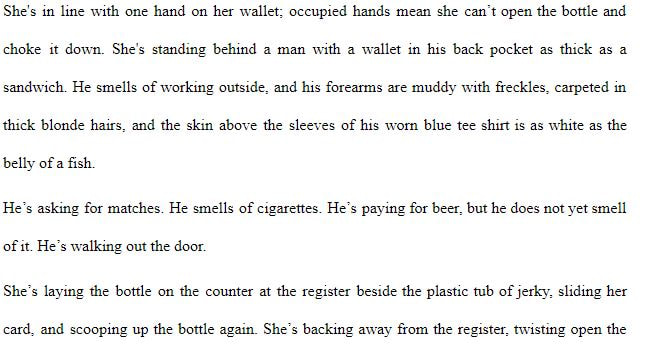
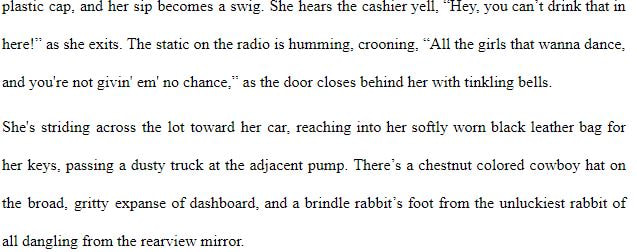
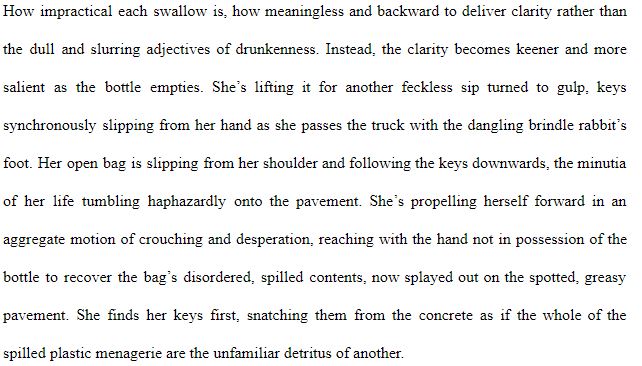

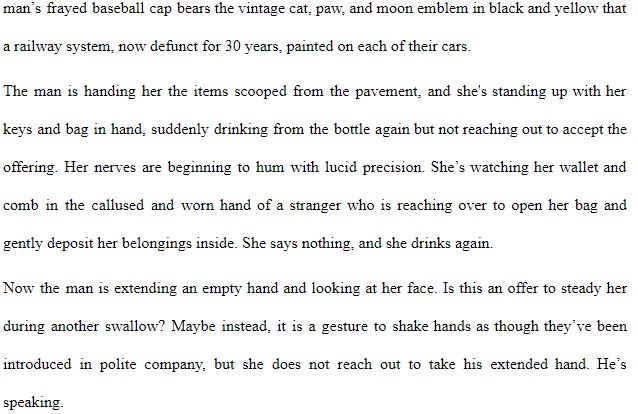
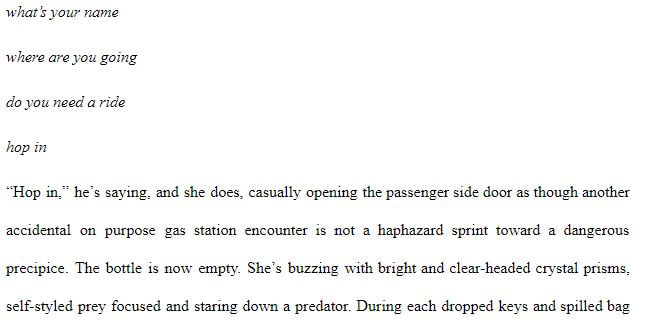
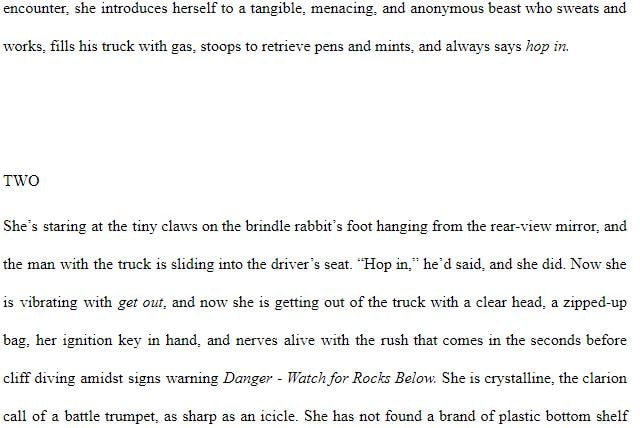
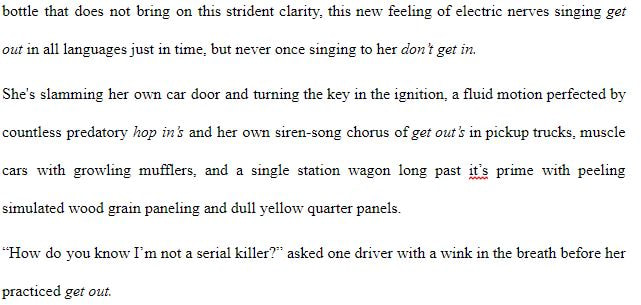
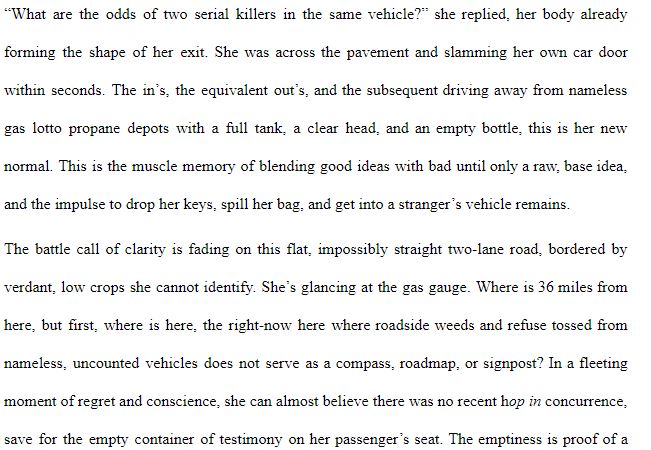

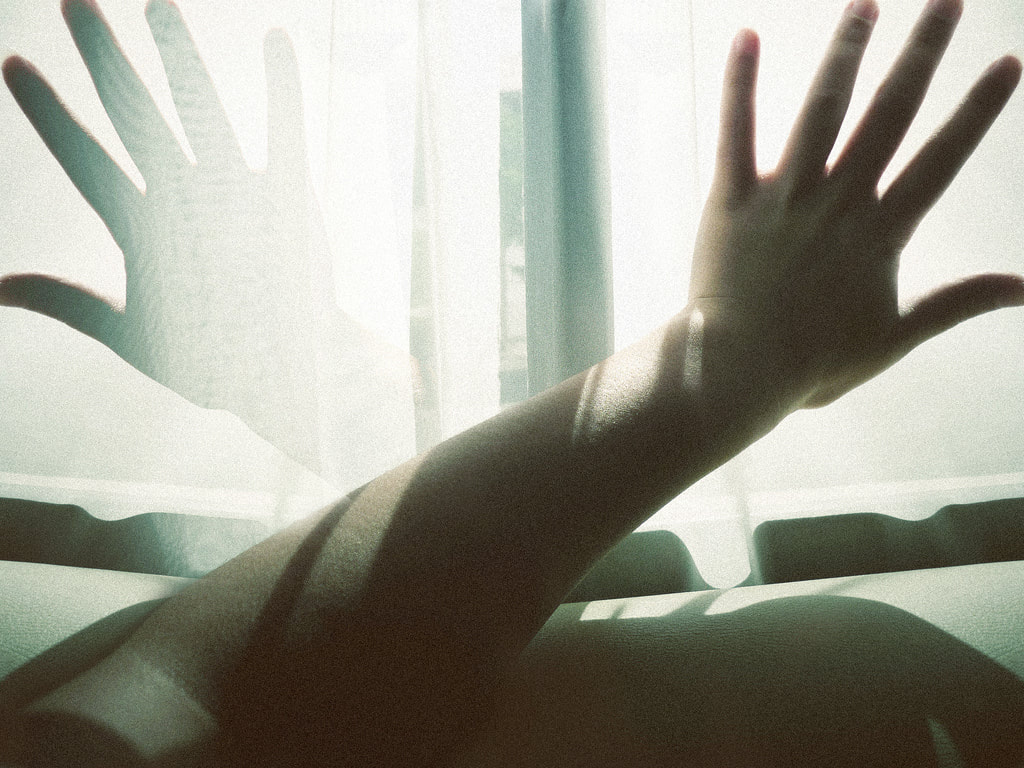
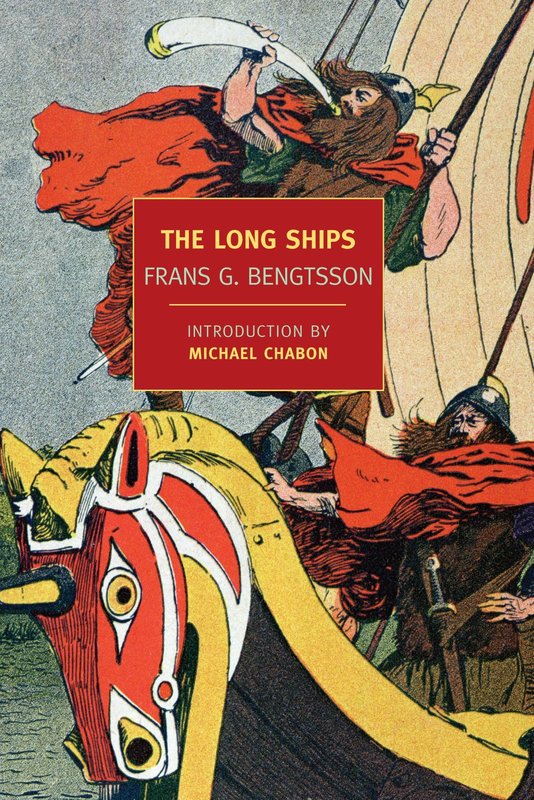
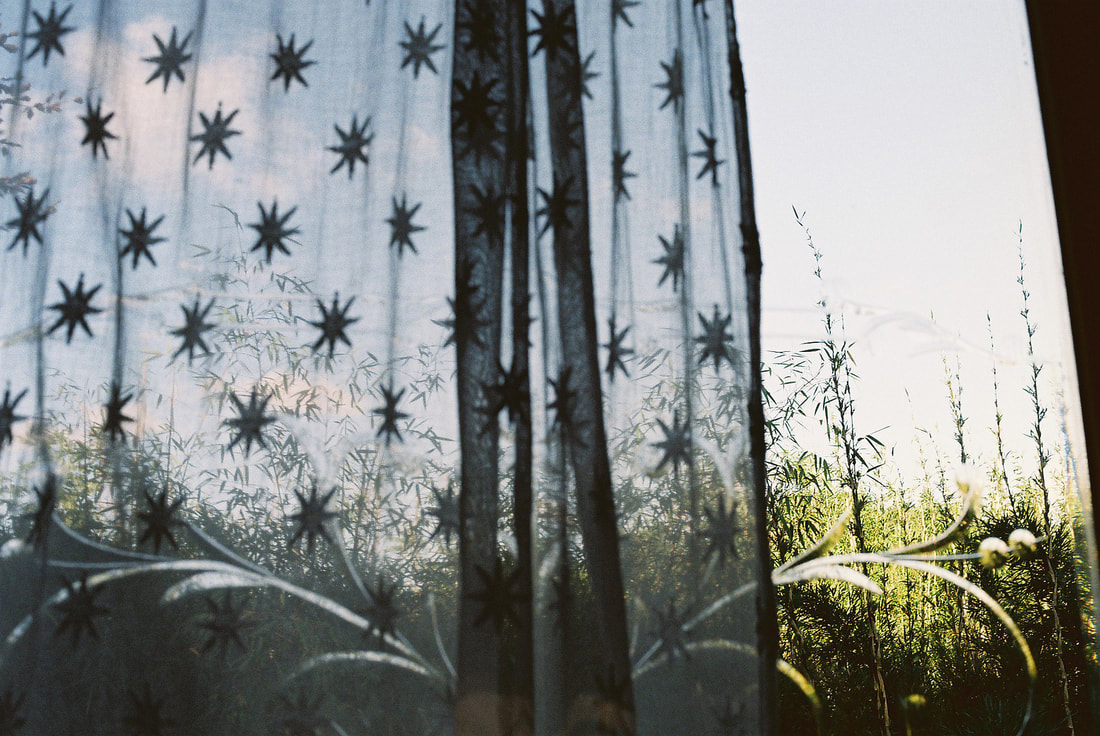
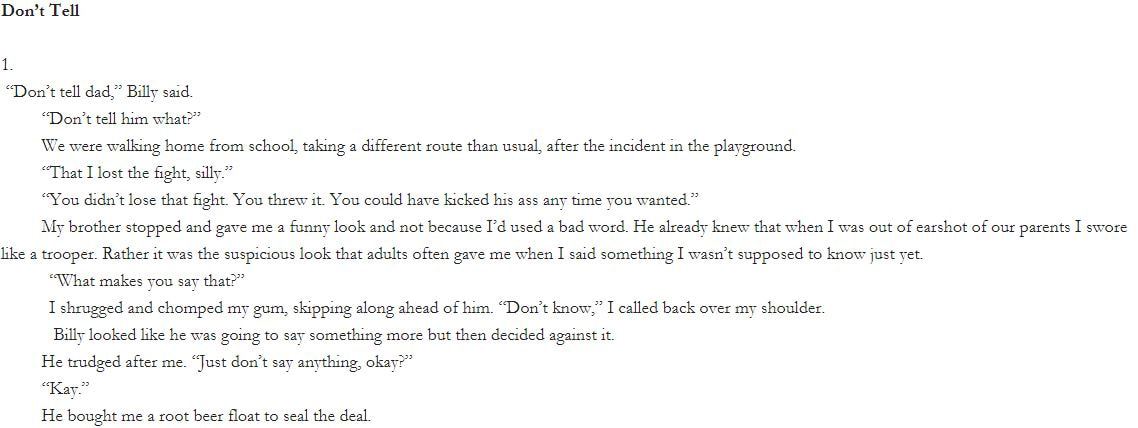
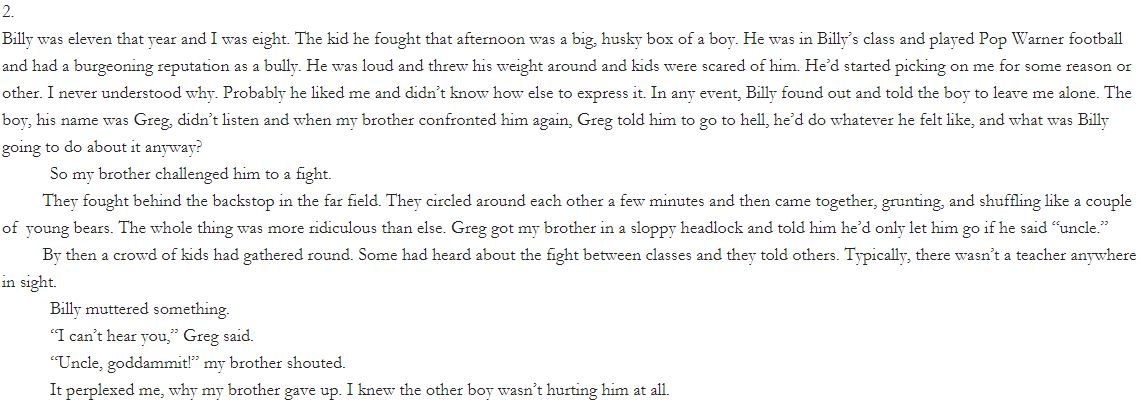



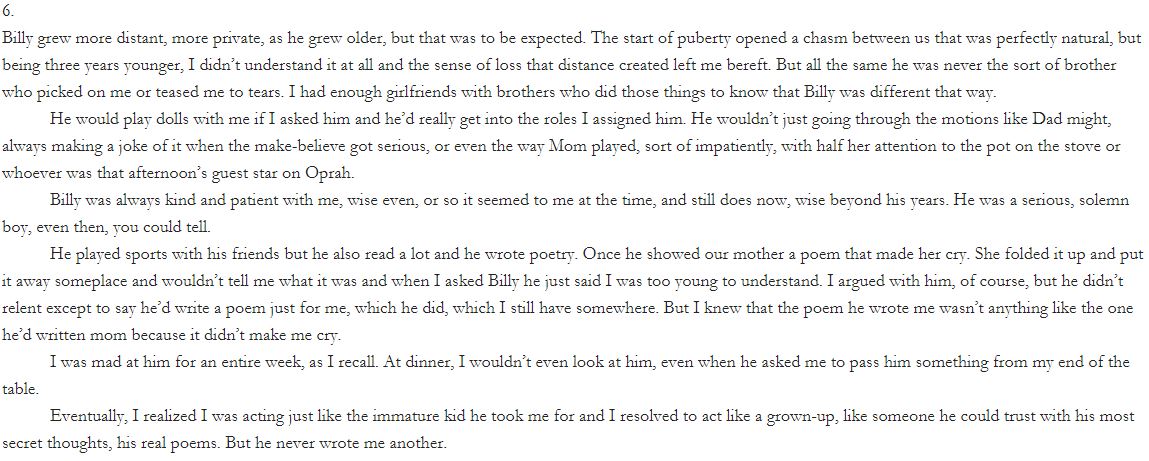
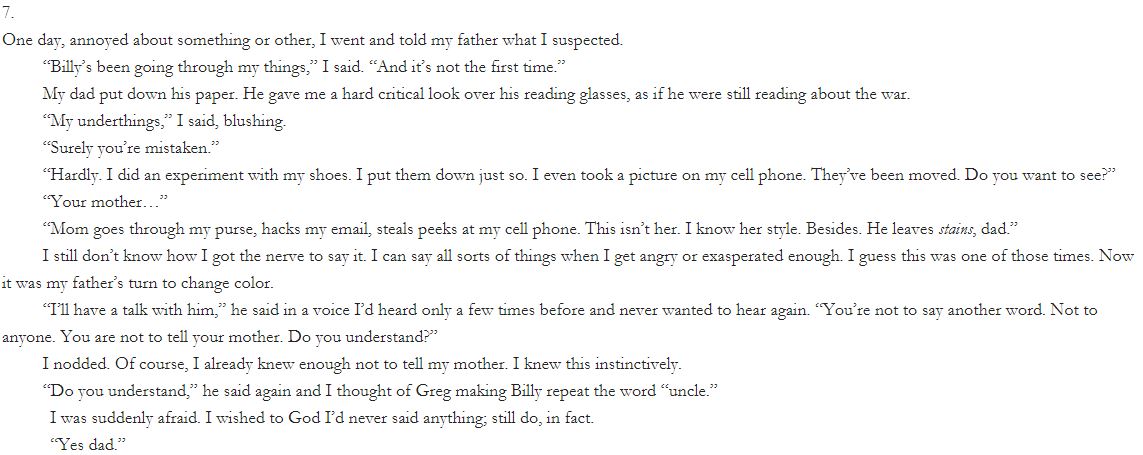

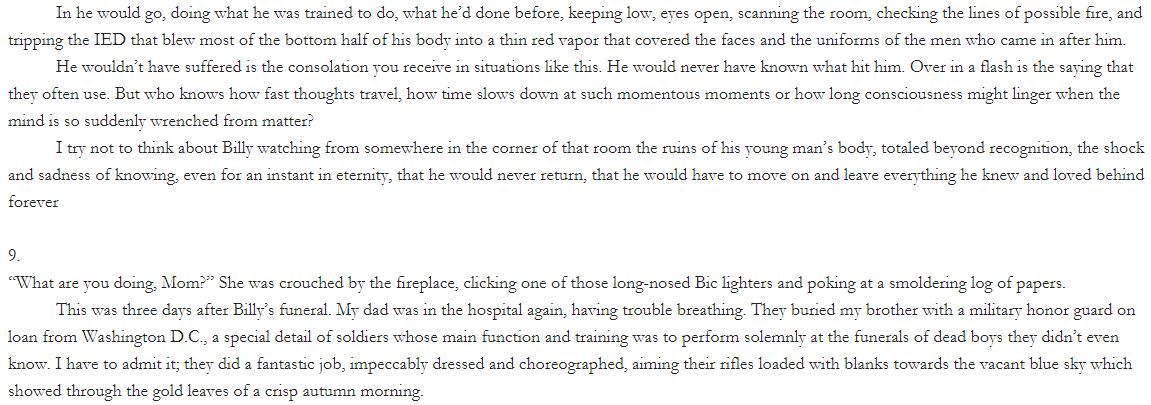
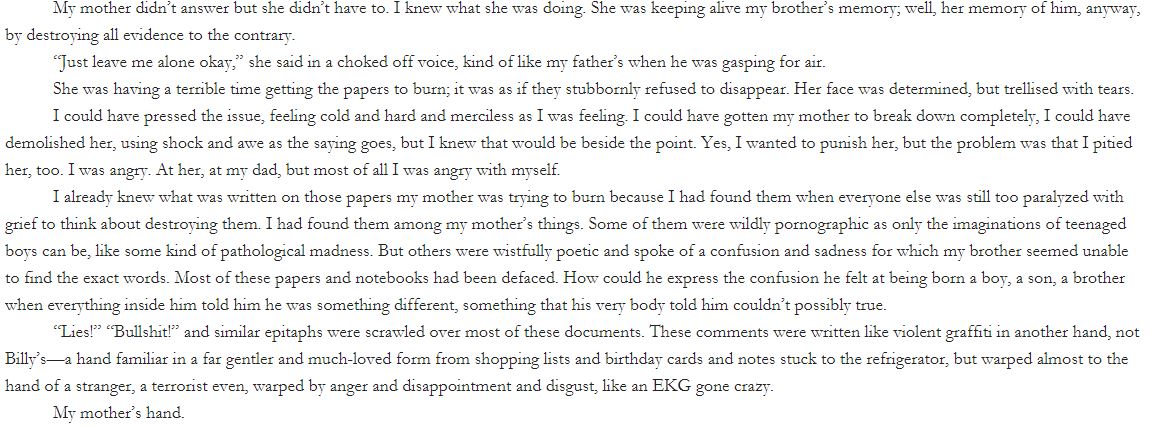
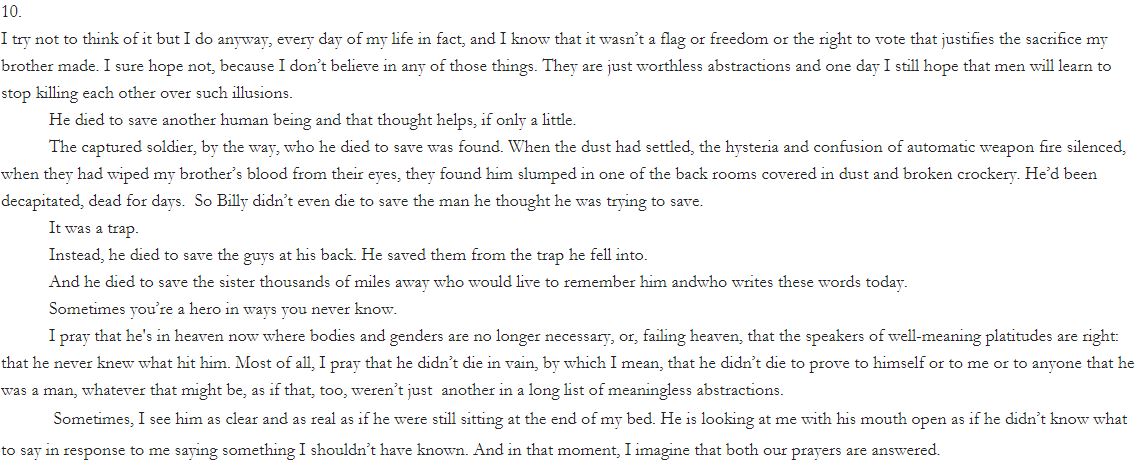
 RSS Feed
RSS Feed
